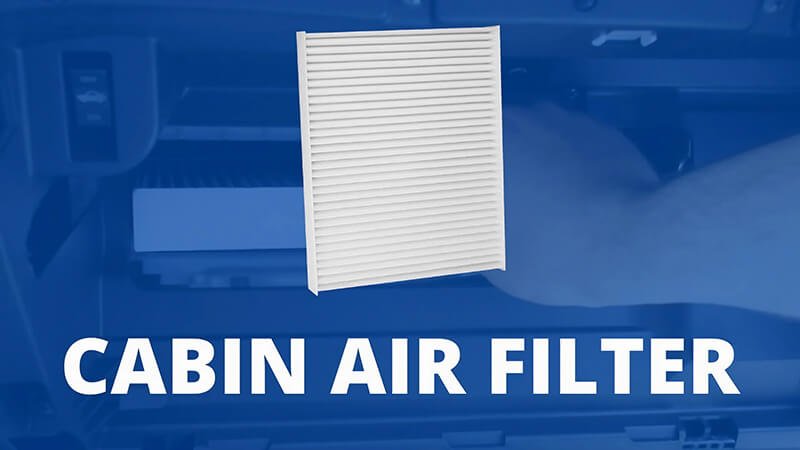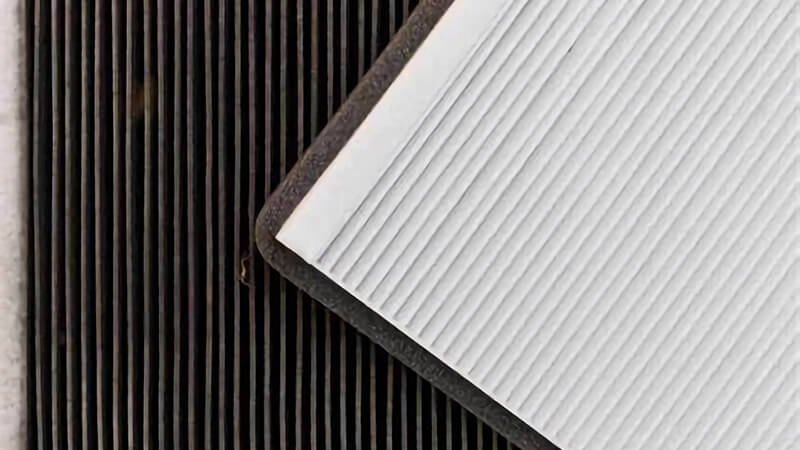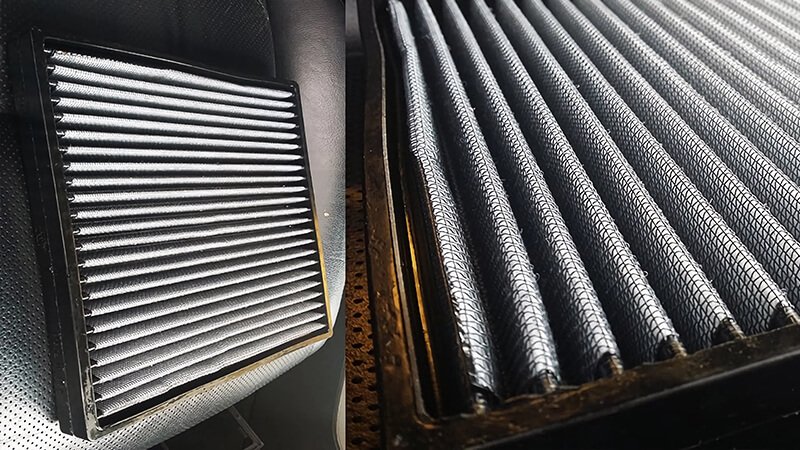Many car owners neglect their cabin air filter, simply because it’s out of sight and out of mind. It’s not as noticeable as issues like low oil or worn-out brake pads, but it plays a critical role in the health of your vehicle’s interior and your well-being. Let’s explore why it’s so easily overlooked and why it deserves more attention.
The cabin air filter is essential for clean air inside your vehicle, yet it is often ignored. People don't realize that a dirty or clogged cabin air filter can impact both the health of the passengers and the performance of the air conditioning system. Let's delve into the real reasons behind its neglect.
Now that we know why it’s often overlooked, let’s explore the specific reasons behind this and how neglecting the cabin air filter can lead to serious issues in your car’s performance and your health. Understanding the full scope of its role will highlight just how crucial this part really is.

Are Cabin Air Filters Really Necessary?
You might be asking, "Do I really need to replace my cabin air filter?" After all, it's easy to dismiss something that doesn’t have an obvious impact. But this small component is a game-changer for the air quality inside your car.
Cabin air filters are crucial for keeping the air inside your car fresh and free of harmful pollutants. Without them, your vehicle’s HVAC system can circulate dirt, dust, and allergens, which affects both air quality and the performance of the system itself.
The cabin air filter is more than just a convenience—it’s essential for several reasons:
1. Improving Air Quality
The primary function of a cabin air filter is to trap dust, pollen, and other airborne particles before they enter your vehicle’s interior. This is especially important for those with allergies or respiratory issues, as the filter helps ensure that the air you breathe inside the vehicle remains clean and safe.
For instance, pollen during spring can trigger allergies in sensitive individuals, while pollutants in urban environments can affect everyone’s health. A cabin air filter1 acts as a barrier against these external contaminants, ensuring that the air circulating within your car is filtered and safer to breathe. Here's a table summarizing the pollutants typically trapped by the cabin air filter:
| Pollutant | Impact on Health |
|---|---|
| Dust | Can cause respiratory irritation and discomfort |
| Pollen | Triggers allergies, sneezing, and asthma |
| Mold & Bacteria | Can lead to respiratory infections and allergies |
| Smoke | Increases risk of lung conditions |
2. Protecting Your HVAC System
Not only does the cabin air filter help maintain clean air, but it also protects your vehicle’s HVAC system2 from debris. Without a proper filter, dust and dirt can clog the system, reducing its efficiency and leading to costly repairs. Keeping your filter in good condition ensures the longevity and efficiency of your air conditioning and heating systems.
A clogged filter restricts airflow, which can stress your HVAC components and lead to overheating, system failure, or the growth of mold and bacteria inside the system. Regular filter replacements help keep the HVAC system running smoothly and extend its lifespan.
3. Enhancing Comfort and Performance
A clogged cabin air filter can reduce airflow, making your air conditioning or heating system work harder to maintain the desired temperature. This can lead to inconsistent climate control, making your car less comfortable, especially during extreme temperatures. For instance, in the summer, your AC might struggle to cool the cabin, and in the winter, the heater may not perform effectively.
By maintaining a clean filter, you ensure your vehicle’s HVAC system functions efficiently, keeping your car comfortable regardless of the weather outside.
Clearly, cabin air filters are not just a nice-to-have accessory. They are necessary for the health of both your car’s system and its passengers.

Why Does My Cabin Air Filter Get Dirty So Fast?
If you’ve ever wondered why your cabin air filter gets dirty so quickly, you’re not alone. It can seem like it needs to be replaced more often than you’d expect. Let’s take a look at why this happens and what factors contribute to the rapid accumulation of dirt and debris.
Cabin air filters get dirty quickly due to exposure to various pollutants, especially when driving in dusty or polluted environments. Frequent use of the air conditioning system also increases the amount of dust and particles the filter has to trap.
The speed at which your cabin air filter gets dirty depends on several factors. Here’s a breakdown of the key contributors:
1. Environmental Factors
If you live in an area with high levels of pollution, pollen, or dust, your cabin air filter3 will likely get dirty faster. Urban environments with heavy traffic, construction zones, or areas near fields and forests are common places where dirt and allergens are more abundant. Driving through these environments results in more particles entering your HVAC system, which the cabin air filter traps.
| Environmental Condition | Impact on Filter Dirtiness |
|---|---|
| Urban Pollution | Increased airborne pollutants |
| Rural Areas | Higher levels of pollen and dust |
| Construction Zones | Dust and construction debris |
In these areas, the cabin air filter can become clogged much faster as it is forced to trap more harmful particles.
2. Air Conditioning Usage
When you use your air conditioning or heating system, the cabin air filter is constantly working to keep the air clean. However, over time, the filter will accumulate dirt and debris from the air, especially if you use the system frequently or run it on high settings. This can quickly clog the filter, reducing its efficiency.
Additionally, air conditioners draw in moisture from the air, which can lead to mold growth on the filter. This is particularly true in humid environments. Mold can clog the filter and impact the air quality inside your vehicle.
3. Poor Maintenance and Neglect
Many car owners forget to replace their cabin air filter or don’t check it as often as they should. This lack of maintenance leads to faster buildup of dirt and debris, which means your filter can become ineffective sooner than expected. Regular replacement is necessary to ensure it continues to do its job properly.
This neglect is often due to the filter being hidden behind the glove compartment, making it easy to forget about. Regularly inspecting and replacing the cabin air filter, at least once every 12,000 to 15,000 miles, is crucial for maintaining clean air inside your vehicle.
By understanding these factors, you can take proactive steps to ensure your cabin air filter is maintained properly and replaced when needed.

Can I Run My AC Without a Cabin Air Filter?
It might be tempting to run your air conditioning system without a cabin air filter, especially if you’ve forgotten to replace it or don’t think it’s necessary. But what impact does this have on your system and the air inside your car? Let’s find out.
While you can technically run your air conditioning without a cabin air filter, it’s not recommended. Without the filter, your HVAC system will be exposed to dirt, dust, and allergens, which can lead to clogging, decreased air quality, and potential damage to the system over time.
Running your AC without a cabin air filter4 is not ideal, and here’s why:
1. Air Quality Deteriorates
Without the cabin air filter, the air circulating inside your car will not be filtered. Dust, pollen, and pollutants will freely enter the cabin, causing the air quality5 inside the car to degrade. This is especially problematic for passengers with allergies or respiratory conditions, as they will be exposed to these harmful particles.
A dirty or missing filter can also allow unpleasant odors to circulate through the system, leading to a less comfortable driving experience.
2. Strain on the HVAC System
The HVAC system in your car relies on the cabin air filter to trap dust and debris before they enter the system. Without the filter, dirt can accumulate inside the system, leading to clogged vents and reduced airflow. This can make your air conditioning and heating less effective, forcing the system to work harder to maintain the desired temperature.
A clogged HVAC system can also cause the motor to overheat, potentially leading to system failure.
3. Potential Damage
Over time, the accumulation of dirt and debris in your HVAC system6 can cause more significant problems, such as motor failure or the growth of mold and bacteria. These issues can result in expensive repairs and may require a complete system overhaul.
While it might seem harmless to run your AC without the filter, it can cause long-term damage to your vehicle’s HVAC system and compromise the health of its passengers. It’s always better to replace the cabin air filter as soon as it’s needed.

Can I Drive Without a Cabin Air Filter?
You might wonder if it’s safe to drive without a cabin air filter. After all, it’s not as crucial as engine components like brakes or tires, right? Let’s take a closer look at the consequences of driving without this filter.
Driving without a cabin air filter is not recommended. While it doesn’t pose an immediate danger to your vehicle’s overall performance, it can lead to poor air quality and potential damage to your HVAC system in the long run.
Driving without a cabin air filter isn’t ideal, and here’s why:
1. Health Risks
The cabin air filter7 plays a vital role in removing allergens, dust, and pollutants from the air inside your car. Without it, these particles will circulate freely in your vehicle’s interior. For passengers with respiratory issues, this can cause discomfort and exacerbate symptoms. Even for healthy individuals, prolonged exposure to poor air quality can lead to headaches or fatigue.
| Health Condition | Impact of Lack of Cabin Air Filter |
|---|---|
| Allergies | Increased exposure to pollen and dust |
| Asthma | Higher risk of asthma attacks due to irritants |
| Respiratory Infections | Greater chance of breathing in harmful bacteria and mold |
2. Increased Maintenance Costs
As mentioned earlier, driving without a cabin air filter can put unnecessary strain on your HVAC system. This can lead to clogging, reduced airflow, and possible damage to the system. Over time, the need for more expensive repairs will increase as dust and dirt accumulate in the system. Regularly replacing the cabin air filter helps avoid these costs.
3. Reduced Comfort
Without a cabin air filter, your HVAC system may struggle to maintain consistent airflow, leading to uneven cooling or heating. This can make your car uncomfortable, especially during extreme weather conditions. The filter also helps maintain clear windows by preventing the buildup of dust and dirt.
In short, driving without a cabin air filter can lead to health issues, costly repairs, and decreased comfort. It’s best to replace the filter regularly to avoid these problems.

Conclusion
The cabin air filter plays a crucial role in maintaining both the comfort and health of your vehicle’s interior. Neglecting it can result in poor air quality, system damage, and higher maintenance costs. Always ensure your cabin air filter is clean and replaced regularly to keep your vehicle running smoothly.
-
Explore the benefits of cabin air filters to understand how they improve air quality and protect your vehicle's HVAC system. ↩
-
Discover why maintaining your vehicle's HVAC system is crucial for comfort and performance, and how filters play a role. ↩
-
Understanding the role of a cabin air filter can help you maintain better air quality in your vehicle. Explore this resource to learn more! ↩
-
Understanding the benefits of a cabin air filter can help you maintain better air quality and protect your HVAC system. ↩
-
Exploring the impact of air quality on health can motivate you to ensure a clean environment in your car. ↩
-
Learning about your car's HVAC system can help you appreciate its importance and the need for regular maintenance. ↩
-
Explore the benefits of a cabin air filter to understand its importance for health and vehicle maintenance. ↩













